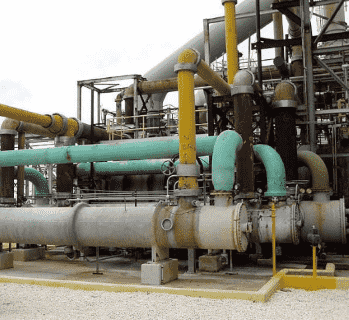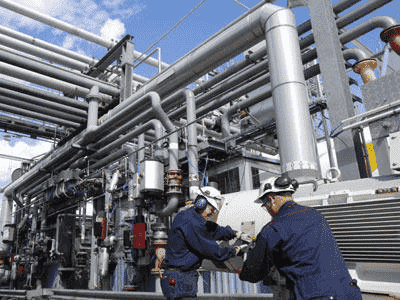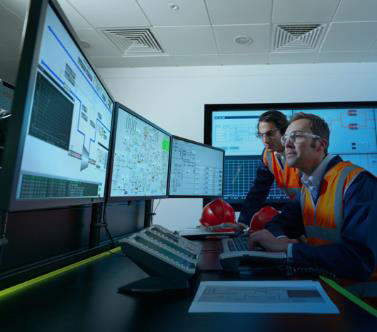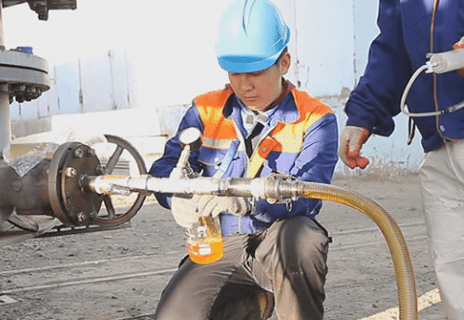COURSE OVERVIEW
RE0108 : ASME B31.3, API 579, API 580, API 581, API 570, & API 571: RBI, FFS, Vibration Analysis & Repair of Piping Systems & Pipelines

OVERVIEW
| COURSE TITLE | : | RE0108 : ASME B31.3, API 579, API 580, API 581, API 570, & API 571: RBI, FFS, Vibration Analysis & Repair of Piping Systems & Pipelines |
| COURSE DATE | : | Oct 07 - Oct 10 2024 |
| DURATION | : | 4 Days |
| INSTRUCTOR | : | Mr. Craig Nilsen |
| VENUE | : | Istanbul, Turkey |
| COURSE FEE | : | $ 5000 |
| Request For Course | ||
OTHER SCHEDULED DATES
| Date | : | Apr 15 - Apr 18 (4 Days) | Location | : | Abu Dhabi, UAE | Classroom Fee (US$) | : | $ 4500 | Course Info |
| Date | : | Jul 01 - Jul 04 (4 Days) | Location | : | Al Khobar, KSA | Classroom Fee (US$) | : | $ 4500 | Course Info |
| Date | : | Oct 07 - Oct 10 (4 Days) | Location | : | Istanbul, Turkey | Classroom Fee (US$) | : | $ 4250 | Course Info |
Course Description
This practical and highly-interactive course includes real-life case studies and exercises where participants will be engaged in a series of interactive small groups and class workshops. This course presents a comprehensive and practical introduction and application of the latest techniques in Risk-Based Inspection (RBI) planning, and Fitness-For-Service (FFS) analysis of inspection results. It discusses practical techniques for the analysis of equipment, piping and pipelines defects and degradation. The focus of the course is on predicting degradation in service, setting optimum inspection intervals (API 580-581), projecting remaining life based on generic data corrected for plant specific conditions, and applying quantitative analysis for degraded conditions to determine whether equipment is fit for continued service or should be repaired or replaced (API 579, ASME B31G, etc.). The course covers design, fabrication, examination and testing requirements of ASME B31.3. It covers Code requirements from design through start-up of new piping & pipeline systems, as well as standards for inspection, integrity and repair of piping & pipeline systems that have been in service, as provided in API 570 and API 579. The course covers the practical aspects of piping and pipeline integrity, maintenance and repair. Participants will be introduced to the technical basis of the ASME and API integrity rules, and their application to case studies and exercises.The participants will be able to recognize causes of degradation in-service, whether mechanically induced (pressure, vibration, fatigue, pressure transients, external damage) or due to corrosion (wall thinning, pitting, cracking), and apply integrity analysis techniques to make run-or-repair decisions. The course includes a discussion on identification of API RP 571 damage mechanisms, risk management, and risk mitigation strategies. Requirements for input data and information, and the roles of the RBI Assessment Team will be described. Approaches to levels of RBI assessment and basis for implementation will be examined. Finally, the course provides an overview of a wide variety of causes of piping vibration from the point of view of an engineer that must identify the cause of vibration, determine if vibration is excessive, and correct the problem if it is. It provides a background on fundamental causes of piping vibration and how to identify source of vibration, rules of thumb and simplified methods for evaluating vibration severity, and methods of treatment.
TRAINING METHODOLOGY
This interactive training course includes the following training methodologies as a percentage of the total tuition hours
LecturesWorkshops & Work Presentations
Case Studies & Practical Exercises
Videos, Software & Simulators
In an unlikely event, the course instructor may modify the above training methodology before or during the course for technical reasons.
VIRTUAL TRAINING (IF APPLICABLE)
If this course is delivered online as a Virtual Training, the following limitations will be applicable
| Certificates | : | Only soft copy certificates will be issued to participants through Haward’s Portal. This includes Wallet Card Certificates if applicable |
| Training Materials | : | Only soft copy Training Materials (PDF format) will be issued to participant through the Virtual Training Platform |
| Training Methodology | : | 80% of the program will be theory and 20% will be practical sessions, exercises, case studies, simulators or videos |
| Training Program | : | The training will be for 4 hours per day starting at 09:30 and ending at 13:30 |
| H-STK Smart Training Kit | : | Not Applicable |
| Hands-on Practical Workshops | : | Not Applicable |
| Site Visit | : | Not Applicable |
| Simulators | : | Only software simulators will be used in the virtual courses. Hardware simulators are not applicable and will not be used in Virtual Training |
RELATED COURSES

RE0017 : Certified Maintenance & Reliability Professional (CMRP) (SMRP Exam Preparation Training)
- Date : Dec 15 -Dec 19 / 3 Days
- Location : Dubai, UAE
- Course Details Register

RE0148(OR1) : Machinery Diagnostics & System 1 Fundamentals
- Date : Dec 16 -Dec 19 / 3 Days
- Location : Dubai, UAE
- Course Details Register

RE0617-4D : Certified Machine Lubricant Analyst (MLA) Level I ISO 18436-4/ICML Certification
- Date : Nov 11 -Nov 14 / 3 Days
- Location : Virtual Course
- Course Details Register

RE0242 : Machine Laser Alignment
- Date : Dec 09 -Dec 12 / 3 Days
- Location : Abu Dhabi, UAE
- Course Details Register
